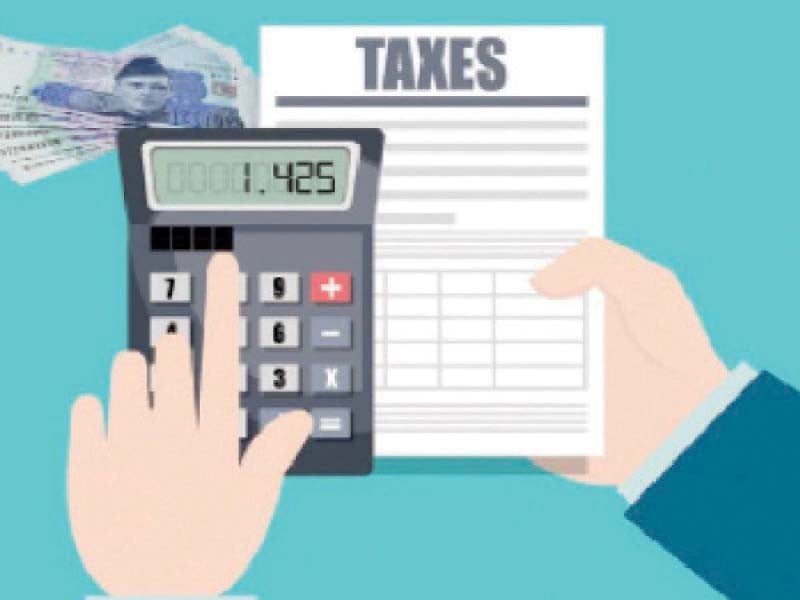
In a major blow, Prime Minister Shehbaz Sharif's government has missed the five-month tax target by a margin of Rs356 billion – which shows that hiring foreign-funded consultants, giving new cars, and doling out cash among taxmen would not help achieve a wrongly set tax target.
As against the target of Rs4.64 trillion, the Federal Board of Revenue (FBR) provisionally collected Rs4.28 trillion by Friday, the last working day of November, marking a growth of less than 23% compared to the required 40%. A senior tax official said that the FBR was trying add Rs10 billion more on Saturday, but the gap remains significant – one which can either be bridged via a mini-budget or by reducing the annual target.
While the FBR missed the five-month tax target by a margin of Rs356 billion, it has also missed November's tax target by Rs166 billion, marking the fourth monthly shortfall in five months.
PM Sharif said on Thursday that there was trillions of rupees worth of tax evasion going on in collusion with taxmen, but he added that it would take time before the issues are resolved. Despite appointing Rashid Langrial as FBR chairman in August and approving a Rs32.5 billion incentive packageincluding new 1,300 cc cars and paying up to four extra monthly salaries for tax officialscollections have yet to improve.
By amending the rules, the government has also allowed the FBR to utilise the Point of Sales funds – collected by charging Rs1 on every printed receipt in Pakistan – to provide perks to officials. The POS fee was originally meant to improve digital initiatives.
Additionally, foreign-funded consultancy services from McKinsey, financed by grants from the Bill & Melinda Gates Foundation, have not yielded significant results.
Two weeks ago, during its unscheduled emergency talks, the International Monetary Fund (IMF) pointed out the falling tax revenues as a major area of concern. This came despite the government imposing a record Rs1.5 trillion worth of new taxes, mainly burdening the salaried class and the corporate sector.
The IMF will assess December's collection data before deciding on a mini-budget, which may target sectors like fertiliser, imports, and contractors' incomes. The IMF is of the view that direct tax collection has remained on track, but there were serious issues in achieving three indirect tax targets – the sales tax, federal excise duty, and customs duty. The FBR had briefed the IMF that the massive revenue shortfall was due to a mismatch between the assumptions taken to set the tax targets and the actual results of the first quarter.
The Federal Board of Revenue (FBR) needs a 40% growth to achieve its annual target of nearly Rs13 trillion, but the first five months' results are disappointing.
Authorities initially projected a shortfall of Rs325350 billion for the first half of the fiscal year, but these estimates fell short even by the fifth month.
Under IMF directives, Pakistan imposed new taxes, heavily burdening the salaried class and levying taxes on every consumable good, including medical tests, stationery, vegetables, and children's milk.
For the July-November period, the FBR missed targets for sales tax, federal excise duty, and customs duties, though it exceeded its income tax goal. However, even the November income tax target fell short.
The FBR missed its monthly target of Rs1.003 trillion by Rs166 billion, collecting Rs837 billion while withholding legitimate taxpayer refunds. Refunds in November totalled Rs35 billion, slightly lower than Rs36 billion a year earlier. This marked the second consecutive month of reduced refunds compared to the prior year.
The FBR's enforcement efforts are also seriously lacking, partly due to the lack of political will to go after traders. The new Member Operations, Dr Hamid Ateeq Sarwar, claimed in meetings that stringent measures could recover an additional Rs1 trillion.
The government imposed an 18% tax on milk and infant milk, 10% on stationery, and 18% on vegetables and fruits imported from Afghanistan. Even buns and rusks were taxed at 10%, alongside taxes on medical tests.
Details show that income tax collections for the first five months totalled Rs1.983 trillion, exceeding the target by Rs190 billion and reflecting a 27% year-on-year increase. Sales tax revenue reached Rs1.546 trillion, up by Rs291 billion or 23% compared to last year but still Rs310 billion below target, despite taxing nearly every essential item at 18%.
Federal excise duty collections rose to Rs277 billion, 25% higher than last year, but the Rs100 billion shortfall was notable despite doubling duties on cement and expanding levies to lubricant oil and real estate transactions. Customs duties totalled Rs473 billion, up 9% year-on-year, but missed the target by Rs137 billion.
Tax authorities blamed inaccurate assumptions used to set the tax target for the missed numbers, a view not shared by the Ministry of Finance. In November, the FBR collected Rs376 billion in income taxRs9 billion below target. Sales tax collections fell short by Rs133 billion, with Rs311 billion collected.


















COMMENTS
Comments are moderated and generally will be posted if they are on-topic and not abusive.
For more information, please see our Comments FAQ